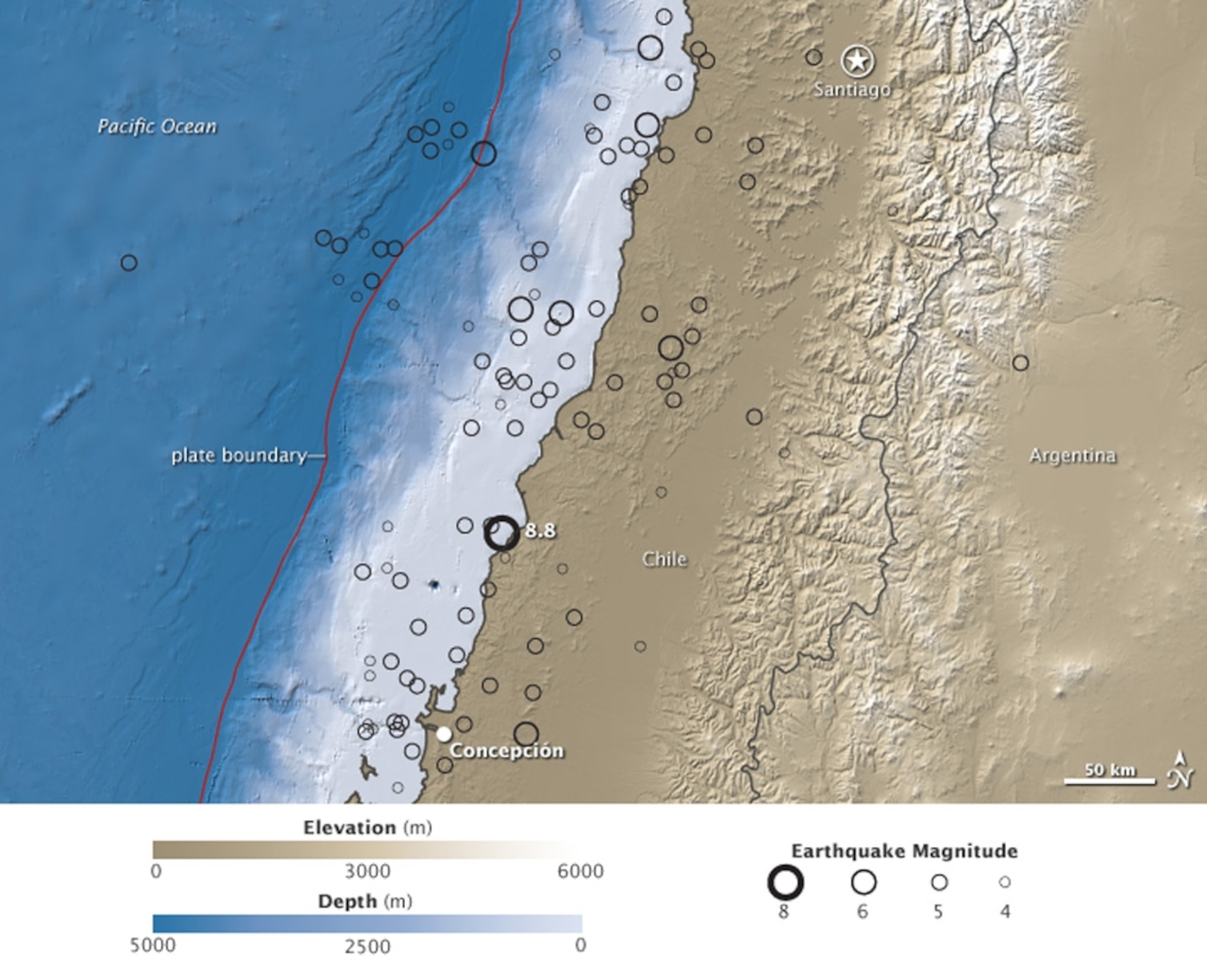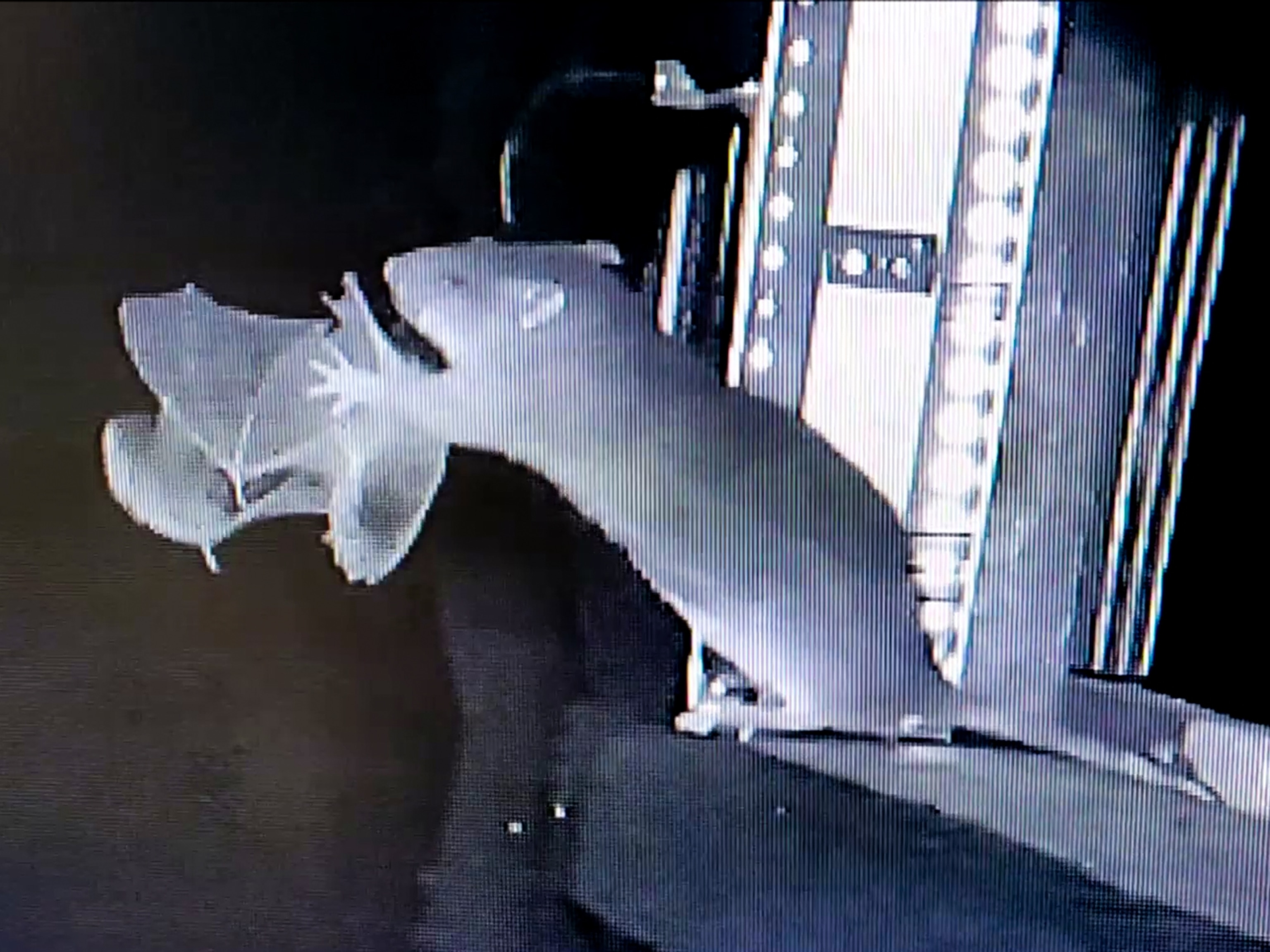February's Chile earthquake was so powerful that it likely shifted an Earth axis and shortened the length of a day—a NASA revelation that helped make this story National Geographic News's tenth most visited of 2010.
By speeding up Earth's rotation, the magnitude 8.8 earthquake—the fifth strongest ever recorded, according to the USGS—should have shortened an Earth day by 1.26 millionths of a second, according to new computer-model calculations by geophysicist Richard Gross of NASA's Jet Propulsion Laboratory in California.
Full story >>














